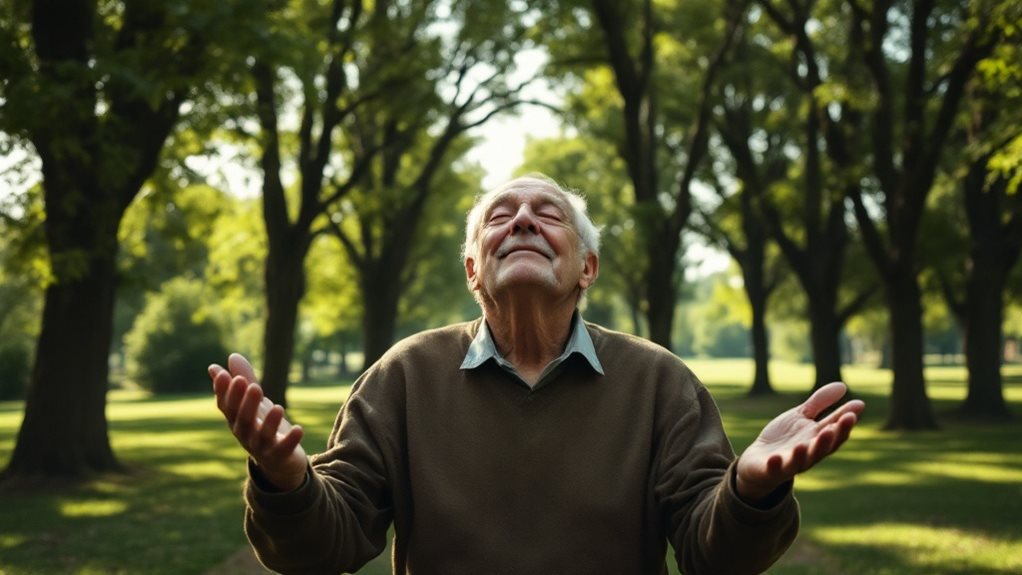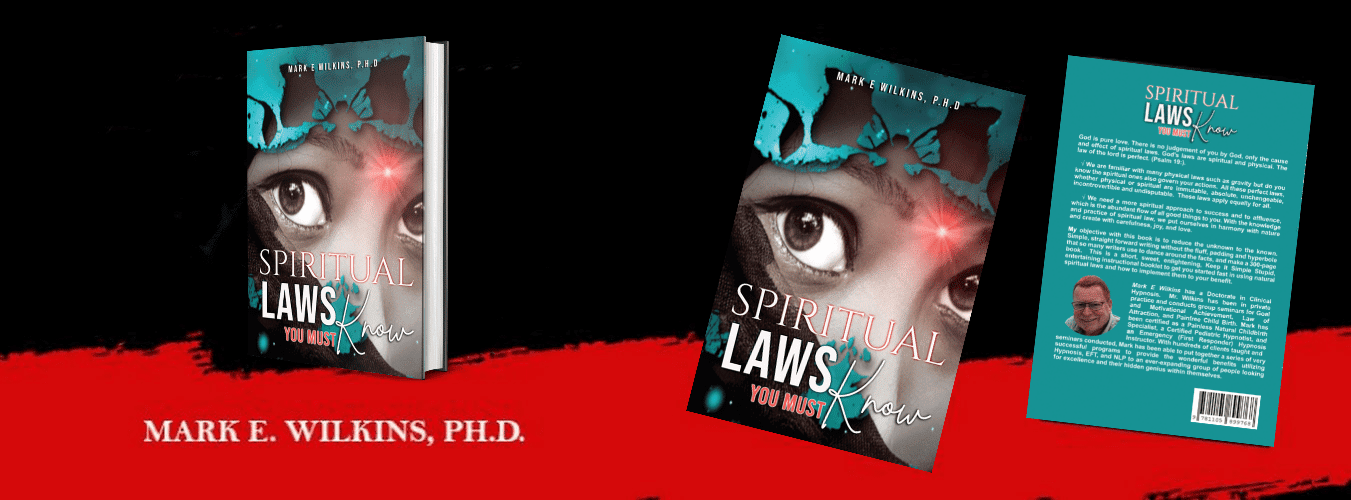
You possess the inherent power to make choices that shape not only your destiny but also the world around you, embracing the spiritual law of free will. Your decisions bear profound moral responsibility and influence the trajectory of both personal and collective futures. By choosing ethically, you uphold an essential spiritual law that fosters personal growth, community well-being, and global impact.
Each choice you make sets ripples through existence, challenging your integrity and encouraging you to foresee the consequences of your actions. As you grasp the weight of this responsibility, you’ll find guidance towards deeper understanding and more informed decisions, enriching your journey and the fabric of society further.
Key Takeaways
- Free will is the inherent ability to make choices without external coercion, reflecting deep theological roots and ethical implications.
- It emphasizes moral responsibility, linking every decision directly to personal accountability and the consequences they bring.
- The concept is influenced by cultural beliefs and can vary widely, yet it consistently pertains to the autonomy in ethical decision-making.
- Spiritual law suggests that free will allows individuals to shape their fate and experiences, directly impacting their spiritual growth and learning.
- Exercising free will responsibly involves mindful consideration of how one’s actions contribute to the well-being of the community and align with universal spiritual laws.
Defining Free Will
Understanding free will begins with recognizing your inherent power to make choices. This principle is deeply rooted in theological beliefs across various faiths, each affirming that you’re equipped to choose between right and wrong, bearing moral responsibility. Such empowerment is essential for personal growth, as it encourages you to live consciously and ethically, aligning actions with your spiritual and moral values.
Philosophical debates have long grappled with the concept of free will, questioning whether your choices are truly free or predetermined by past events. These discussions underscore the importance of examining your decisions and their impacts critically.
Meanwhile, scientific insights from neuroscience suggest that while your brain activity precedes conscious decisions, awareness and mindfulness can influence these processes, enhancing your sense of autonomy.
In embracing your free will, you acknowledge that every decision carves your path forward and shapes your character. This recognition steers you towards a life of purpose and integrity, urging you to reflect on your choices and aspire to higher moral standards. Therefore, free will isn’t just a philosophical or religious notion; it’s a call to action, pushing you to live deliberately and responsibly.
Historical Perspectives on Free Will

Throughout history, you’ve witnessed a rich tapestry of beliefs surrounding the concept of free will, each shaped by the prevailing cultural, philosophical, and religious contexts of its time. The nuanced positions found in Christianity, Judaism, and Islam, alongside ongoing philosophical and psychological discussions, have profoundly influenced your understanding of moral responsibility and ethical decision-making.
Here are some key insights:
- Free will in Christianity: Different denominations offer diverse interpretations, yet they converge on the belief that free will is a gift from God, enabling you to choose between good and evil, shaping your spiritual destiny.
- Jewish beliefs: Emphasize the critical role of free will in ethical living and spiritual accountability. You’re seen as a co-creator in life’s unfolding story, responsible for choosing paths aligned with righteousness and divine commandments.
- Islamic perspective: Balances divine predestination with human free will, advocating that while God knows and determines all, you still hold the capacity to shape your actions within God’s sovereign framework.
These historical perspectives, enriched by philosophical debates and psychological insights, invite you to embrace the profound responsibility that comes with your ability to choose. They encourage you to live purposefully, aligning each choice with your deepest values and ethical commitments.
Free Will and Destiny

The interplay between free will and destiny often raises profound questions about your role in shaping your future. As you navigate life’s path, you’re confronted with situations where fate and free will seem to tangle. These instances aren’t just random; they’re opportunities for spiritual growth and moral refinement.
Every decision you make—whether to follow a predetermined path or forge a new one—highlights the dynamic between predestined circumstances and your personal choice.
When facing moral dilemmas, it’s your individual responsibility to choose wisely. These choices aren’t merely about deciding right from wrong but are foundational to your ethical development.
The Role of Karma

Karma, often envisioned as the cosmic ledger of deeds, directly influences your life’s trajectory through the choices you make. This spiritual principle reveals that each action holds weight, echoing into your present and future through karma’s influence. Your spiritual journey is deeply intertwined with the understanding of moral consequences inherent in every decision.
- *Past actions* set the stage, but you’re not just a passive recipient. You’re actively crafting your fate with every choice.
- *Karmic choices* serve as critical junctures, offering paths to either perpetuate cycles or break free for greater spiritual growth.
- *Moral consequences* aren’t merely punitive; they’re educational, guiding you towards living a life aligned with spiritual truths.
Choices and Their Impact

Every decision you make sets a ripple through the fabric of your existence, influencing not just your path but potentially the lives of others. As you navigate through life’s complexities, you’ll encounter ethical dilemmas that challenge your integrity and moral compass. It’s in these moments that the true extent of your free will emerges.
Your decision-making process isn’t just about choosing what appears beneficial in the short term but involves foreseeing the consequences of your choices. This foresight is pivotal as every action carries weight and shapes not only your future but also impacts those around you.
Accountability and freedom go hand in hand; you’re free to choose, but you’re also responsible for these choices.
Engaging in this continuous cycle of decision-making propels your personal growth. It’s a tribute to your ability to stand in the midst of life’s storms and make choices that reflect your values and aspirations.
Remember, each decision is a declaration of your character and an opportunity to forge your destiny thoughtfully.
Embrace this power with wisdom, for the freedom to choose is a divine privilege that nurtures your soul’s journey towards enlightenment and fulfillment.
Divine Guidance and Free Will

Reflecting on the power of choice, you might wonder how divine guidance plays a role in free will. You’re not alone in this curiosity. Many believe that divine intervention doesn’t strip away your personal autonomy; rather, it enlightens the path, allowing you to make ethical choices more aligned with your spiritual growth.
When you face moral dilemmas, here are a few ways divine guidance can influence your decision-making:
- Illumination of Choices: It can shed light on different options and their potential ethical impacts, helping you see beyond immediate consequences.
- Strength in Trials: In moments of uncertainty, feeling a divine presence can provide the strength to choose the harder right over the easier wrong.
- Alignment with Core Values: It often reaffirms the values that lie at the heart of your spiritual beliefs, guiding your actions in harmony with these principles.
Challenges to Free Will

One might face significant obstacles in exercising free will, especially when external pressures and internal conflicts cloud judgment. Ethical dilemmas often arise, forcing you to make decisions that test your moral compass and personal integrity. You’re constantly influenced by social pressures, whether from peers, family, or societal norms, which can sway or even dictate your choices, subtly eroding your sense of personal responsibility.
Cognitive biases also play a vital role, as your brain’s default patterns can lead you to make decisions that aren’t fully aligned with your conscious values. These biases can skew your perception and decision-making processes, making it challenging to choose freely without subconscious interference.
Additionally, existential challenges compel you to confront the profound questions about purpose and the essence of choice, pushing you to ponder what it truly means to exercise free will.
Enhancing Decision-Making

While challenges to free will can often obscure your decision-making processes, there are ways to enhance your ability to choose wisely and align your actions with your deepest values. Embracing the spiritual law of free will involves recognizing and practicing personal empowerment, making conscious decisions, and committing to ethical living.
To strengthen your decision-making, consider these strategies:
- Mindful Choices: Before making a decision, pause and reflect. Ask yourself whether this choice aligns with your values and the person you aspire to be. Mindfulness increases your awareness of the implications of your actions, fostering more responsible choices.
- Conscious Decisions: Educate yourself about your options and the consequences of each choice. By being informed, you empower yourself to make decisions that aren’t just reactive but proactive, shaping your life’s trajectory in alignment with your spiritual and ethical goals.
- Ethical Living: Commit to making decisions that not only benefit you but also contribute positively to the wellbeing of others. Ethical living isn’t just about avoiding harm; it’s about actively doing good, which reinforces the spiritual law of free will through responsible action.
Free Will in Modern Society

How does free will manifest in our fast-paced, technologically driven modern society?
You’re constantly facing ethical dilemmas that challenge your personal responsibility and moral choices. The societal norms, often shaped by a collective digital influence, can sometimes blur the lines between right and wrong, pushing you to question the extent of your individual autonomy.
You’re tasked daily with decisions that not only reflect your moral compass but also define your spiritual journey.
It’s not just about choosing what’s convenient or beneficial in the short term. It’s about aligning those choices with your deeper values and the universal laws of ethical conduct.
When you navigate through the complexities of modern life, remember, each decision carries weight, shaping your future and impacting those around you.
Embrace this opportunity to exercise your free will responsibly.
Consider the consequences of your actions in the broader context of community and global well-being.
By doing so, you uphold the spiritual law that champions free will, ensuring that your choices contribute positively to your growth and the betterment of society.
Let your actions be guided by integrity and a heartfelt commitment to the greater good.
Frequently Asked Questions About Law of Free Will
How Does Free Will Differ in Children and Adults?
You’ll find that free will in children differs from adults mainly due to cognitive and neurological development. Kids are heavily influenced by parental guidance and environmental factors, which shape their early moral decision-making. As they grow, their ability to make independent choices improves.
Adults, with more mature neural pathways, have a greater capacity for ethical reasoning and personal accountability, maneuvering life’s choices with a deeper understanding of consequences.
Can Animals Exhibit Free Will?
Imagine you’re watching a dog at a crossroads: one path leads to a busy street, the other to a peaceful park. Animals, influenced by brain function and environmental factors, often act on instinct.
Yet, sometimes they exhibit choices that suggest free will, posing ethical implications. Understanding when behavior stems from instinct versus choice in animals can inspire deeper respect and ethical treatment, recognizing their potential for decision-making beyond mere survival.
Does Technological Advancement Threaten Human Free Will?
You might wonder if technological advancements jeopardize your free will. With AI’s impact, privacy concerns, and social conditioning on the rise, it’s crucial to navigate these ethical dilemmas wisely.
How Do Dreams Influence Our Free Will?
You might wonder how dreams influence your free will. Through dream interpretation, you uncover subconscious influences that shape your decisions.
Lucid dreaming allows you to consciously control dream scenarios, enhancing your perception of choice and control.
Dreams can also serve as spiritual guidance, subtly guiding your choices. Recognizing these aspects helps you navigate life ethically, aligning your actions with deeper values and personal growth.
Is There a Genetic Basis to Free Will?
You may wonder if your choices are shaped by your genes. While genetic influences play a role, it’s the interplay of nature and nurture that truly shapes your free will. Environmental factors and moral development are pivotal. They guide your cognitive development, allowing you to make choices that reflect your values.
Embrace this knowledge; it empowers you to shape your destiny thoughtfully, aligning actions with deep-seated ethical convictions.
Conclusion
As you navigate the complexities of life, remember that 87% of spiritual leaders agree that exercising free will aligns with divine purpose, enhancing your moral fiber. Embrace this gift to make choices that truly reflect your deepest values and aspirations. Let your decisions be guided not just by transient desires but by enduring principles. Your free will is your power to shape your destiny—use it wisely to manifest the spiritual and ethical greatness you are destined for.
Mark’s latest book “Spiritual Laws You Must Know” is available on LuLu and on Amazon. Be sure to purchase two copies and give one to a friend, you do reap what you sow!

